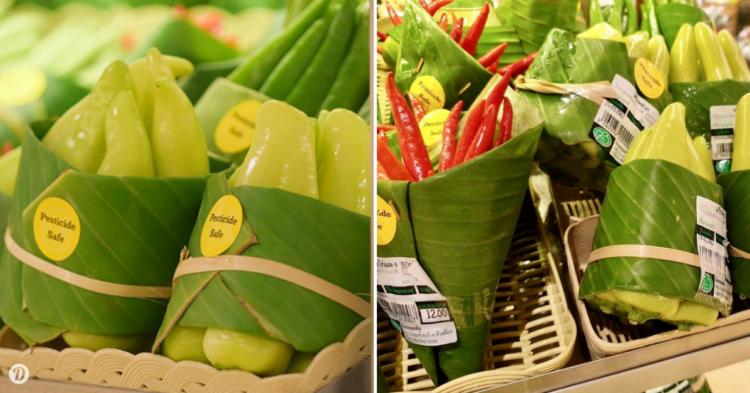From the clothes we wear to the food we eat, the things we buy everyday are intimately connected to how much we waste.
Even though reusable cloth and paper shopping bags have grown in popularity over the last decade, plastic food packages and bags are still a major contributor to an increasingly dangerous issue.
The reality is that in 2015 alone, 381 million tonnes of plastic was produced.

And even more plastic was thrown away .
381 Million Tonnes .
To put these numbers into perspective, 381 million tonnes is roughly equivalent to the mass of two-thirds of the world’s population.
Using that much plastic has very real consequences.
It is estimated that out of that 381 million tonnes, approximately 8 million tonnes of plastic are dumped in our oceans per year , contributing to the total amount of garbage in surface waters, which is estimated to be between 10-100 million tonnes.
To fight these numbers, Asian Supermarkets are starting a new trend.

Instead of using plastic packaging, Rimping Supermarket in Thailand is using banana leaves to wrap their produce.
This method of packaging signifigantly reduces the amount of plastic used, since each bunch of produce is simply wrapped in a banana leaf and secured using a flexible piece of bamboo.
When a real estate company shared photos of the supermarket, the idea quickly went viral.

Perfect Homes in Chiangmai, Thailand posted photos of the packaging to their Facebook page .
The post garnered a lot of attention, with 3.5 million views and over 17 thousand shares.
The Perfect Homes employee had no idea that the photographs would get so much attention.

“I was shocked when it hit 20 shares.” they stated in an interview with Bored Panda,
“It was not until the morning while I was in the gym that I started to realised what was happening, I pointed out to Stig my friend that it had now something like a thousand shares and that this was crazy. An hour later it had nearly doubled!”
But not everything on Rimping Supermarket’s shelves is plastic-free.

A representative for the grocery store stated that they are “taking one step at a time and trying their best” when it comes to completely transitioning away from plastic packaging.
A lot of food arrives to supermarkets pre-packaged in plastic, which the store has no control over. Plastic is also the cheapest packaging option, which a lot of companies feel is more important of a factor than waste production.
As Customers, our purchases have a lot of power.

“I feel it is now up to the shoppers to show the supermarket which they prefer” the representative continued, “Because without a doubt if every one opts for the banana leaf packaging then they will stop stocking the items in plastic”.
The photographs even prompted online discussion about plastic use back in North America.

One Redditer pointed out that though banana leaf packaging works well in countries like Vietnam, it is less viable in places like The US and Canada:
We don’t have the supply of banana leaves here that they do in other parts of the world. I support the concept, but the execution would be difficult.
Regardless of their popularity, Zero-Waste initiatives are a step in the right direction.

With so many views and shares, it is likely Rimping Supermarket’s banana leaf packaging inspires similar eco-friendly initiatives in supermarkets across the globe.
It only takes one idea to spark positive change.
















































